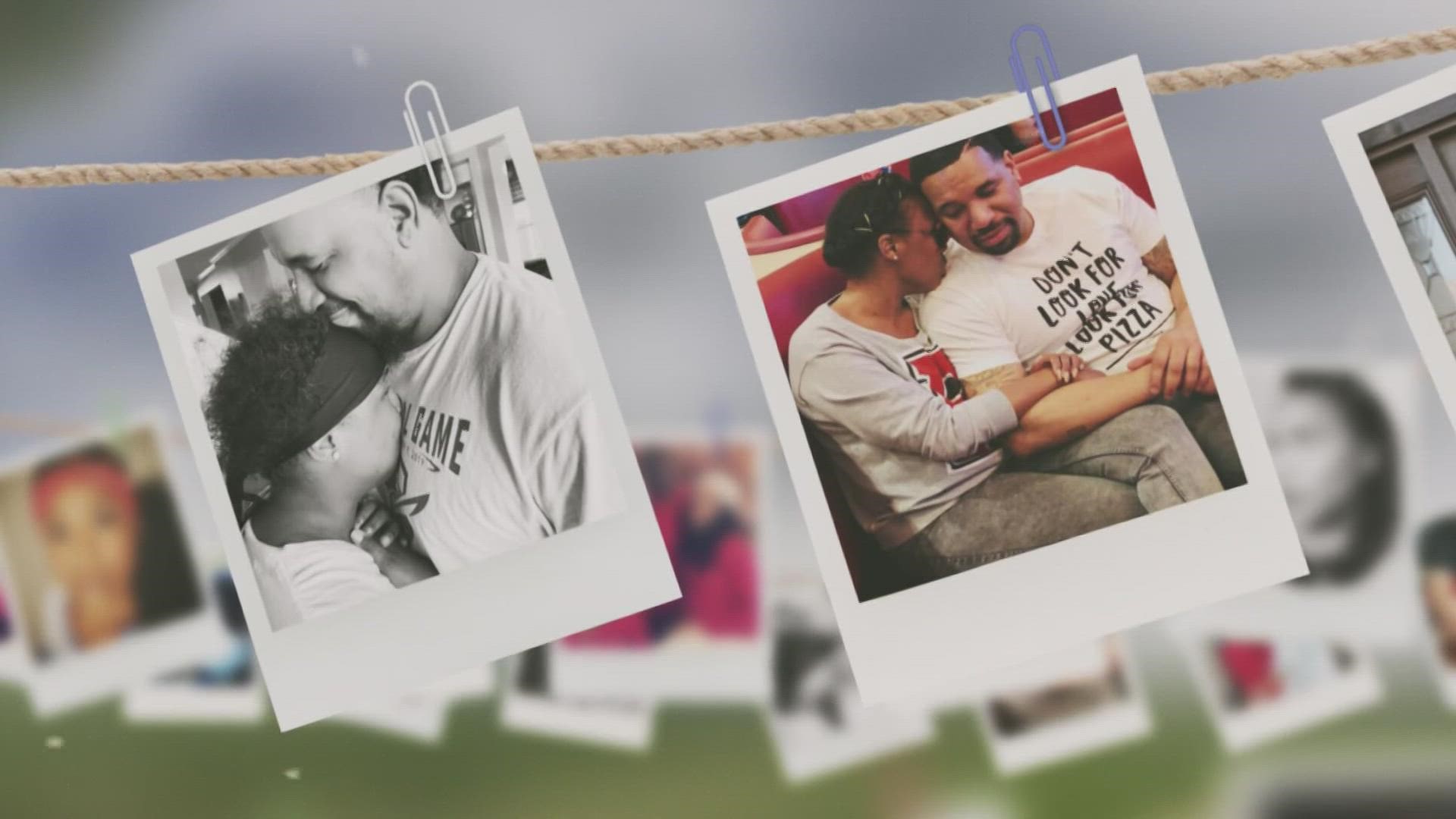DALLAS — Tiffani Martin knew from early childhood that she had type 1 juvenile diabetes but that she could live a full and healthy life if she managed her diet and a moderate level of exercise.
She admits she lost sight of that in her college years and now wants to warn others, specifically Black Americans, that they can avoid what eventually happened to her.
"I started seeing little black flutters and little swirls," Martin, now 33, said from her home in DeSoto. Those flutters and swirls that started around the time she was 26 years old were the first visual evidence of diabetic retinopathy.
"But once it started hitting it went haywire. It was only about six, seven months from the initial time of me recognizing it until completely losing all of my sight," she said, despite several surgeries to save what sight she did have left at the time.
She would receive a dual transplant two years later: pancreas and a kidney. The pancreas transplant, solving her insulin level issues, is still doing well. Her kidney transplant however is failing. She is on dialysis three days a week and on a transplant list again.
But this is where Tiffani's story, and her activism, are just getting started.
She is well aware that Black American adults are 60% more likely to be diagnosed with diabetes, according to the National Institute of Health, and that more than 800,000 Black Americans have diabetic retinopathy that can lead to blindness as it did for her.
But a Yale School of Medicine opthalmologist wants you to consider more than just those numbers.
"There were some conclusions that said well, this is how "they" are, right? Which is unhelpful," Kristen Nwanyanwu MD, MBA, MHS, Yale School of Medicine said of previous studies. "Because we have to get to the bottom of things."
"You have to think about redlining. You have to think about access, upward mobility, generational wealth, access to care. It's more complicated than just the construct of race," she said of the socio-economic factors that contribute to a variety of bad health outcomes.
Tiffani Martin, now working with Focus on Diabetes, the eye health initiative from the American Diabetes Association, is willing to share her story to help others change habits, change expectations and change those outcomes -- advocating differences in healthier lifestyles, healthier food and the Black community's access to better health care.
"And so it's the little things we can change in our every day lives that can make a world of difference," Martin said. "I am very quick to share what I went through and show the scars just so not a single person has to go through what I went through."
That is a mission she shares now with the support of her husband. And on the day of our interview, she wore a sweatshirt that she received from her church. It said "moving forward."
"I thought the message was incredible and very befitting and I want everybody to just keep moving forward," she said.
Moving forward to help solve problems she sees very clearly need to change.

